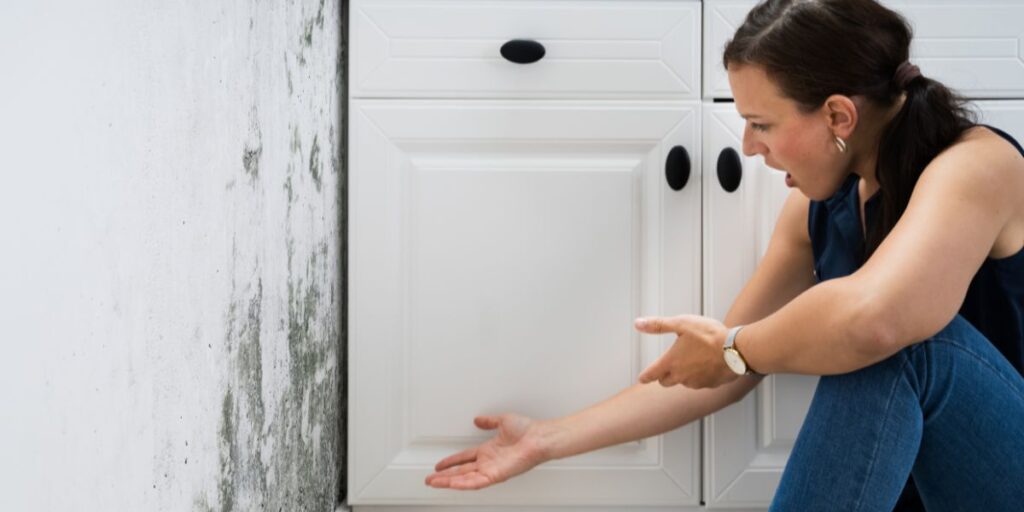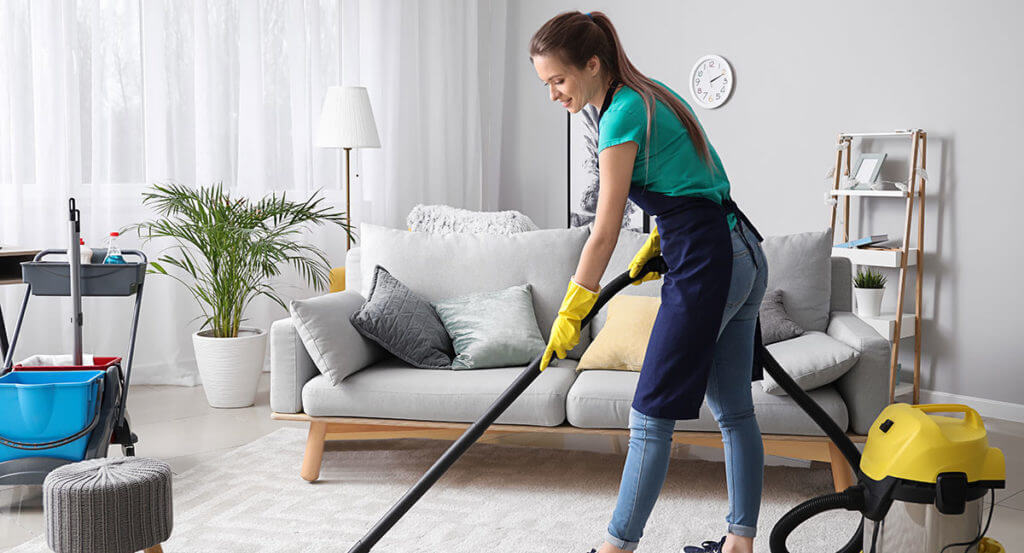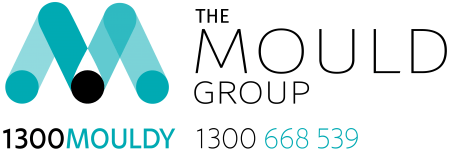Mould is a common problem faced by homeowners in Brisbane, Australia. It affects not only the aesthetics of your home but also the indoor air quality, making it important to address promptly. In this blog, we will provide answers to some common questions about mould in Brisbane and provide useful information to help you identify and tackle this issue effectively.

What causes mould growth in Brisbane, Australia?
Mould thrives in environments with excessive moisture and poor ventilation. Brisbane’s warm and humid climate provides the perfect conditions for mould to grow. Let’s explore some common causes of mould growth in Brisbane:
High humidity levels
Brisbane experiences consistently high humidity all the year, especially during the summer months. Mould spores thrive in moist environments, and humidity levels above 60% can contribute to their growth.
Leaks and water damage
Plumbing leaks, roof leaks, or water damage caused by floods or heavy rain can create damp conditions that promote mould growth. It is crucial to address any water leaks or damage promptly to prevent mould from spreading.
Poor ventilation
Inadequate ventilation in areas such as bathrooms and kitchens can increase humidity levels. This provides an ideal environment for mould to flourish. Ensuring proper airflow and ventilation in these areas can help limit the risk of mould growth.
Condensation
When warm air comes into contact with cold surfaces, condensation occurs. This can happen on windows, walls, or ceilings, especially in poorly insulated homes. If not managed properly, condensation can contribute to mould growth.
How can I identify mould in my home in Brisbane?
Early detection of mould is essential for effective remediation. Here are some warning indicators to look out for:
Visible mould growth
Check for discoloured patches on walls, ceilings, or other surfaces. Mould often appears as black, green, or brown spots. It may also have a fuzzy or slimy texture.
Musty odour: Mould produces a distinct musty smell. If you notice an unpleasant odour in specific sections of your home, it could indicate the presence of hidden mould.
Allergic reactions
When exposed to mould, some people may develop allergic reactions. Symptoms include sneezing, coughing, itchy eyes, or a runny nose. If these symptoms worsen when you are at home or in particular areas of your house, it could be a sign of mould growth.
Increased respiratory issues: Prolonged exposure to mould can aggravate respiratory conditions such as asthma or allergies. If you or your family members experience an increase in respiratory problems, it is important to consider the possibility of mould in your home.
Is mould a common problem in Brisbane?
Yes, mould is a common problem in Brisbane due to its subtropical climate and high humidity levels. The combination of warm temperatures and moisture creates an environment favourable for mould growth. It affects various types of properties, including houses, apartments, and commercial buildings. Both old and new constructions, with or without air conditioning, can experience mould issues.
While the prevalence of mould may vary depending on factors like location, building conditions, and maintenance practices, it is important for homeowners to remain vigilant. Taking proactive measures to prevent and address mould problems promptly is crucial for maintaining a healthy living environment.
How common is mould in homes in Australia?
Mould is pervasive in many Australian homes, including those in Brisbane, due to the region’s warm temperatures, high humidity, and inadequate ventilation. Approximately 1 in 4 homes in Australia experience significant mould growth. Whether it’s visible mould patches on walls or hidden mould in damp areas like bathrooms and basements, its presence is a cause for concern.
Can mould affect the value of a property in Brisbane?
Mould can indeed have a significant impact on the value of a property, especially in Brisbane’s real estate market. Potential buyers are increasingly aware of the health risks associated with mould exposure, making it an important consideration during property inspections and evaluations.
When mould is detected in a property, it may be perceived as a sign of poor maintenance and neglect, leading to decreased property value. Additionally, suppose mould-related issues are not properly addressed. In that case, they can escalate and cause structural damage, further reducing the value of the property.
To mitigate the impact of mould on property value, homeowners in Brisbane should promptly address mould problems. Hiring a reputable mould removal company, such as The Mould Group in Brisbane, can ensure a thorough assessment, effective remediation, and restoration of the property’s value.
What are the health risks associated with mould exposure in Brisbane?
Exposure to mould can pose various health risks, especially for individuals with respiratory conditions, allergies, or weakened immune systems. Brisbane’s humid climate contributes to accelerated mould growth, increasing the likelihood of exposure.
Mould spores can trigger allergies, resulting in symptoms like sneezing, coughing, itchy eyes, and nasal congestion. People with asthma may experience worsened symptoms such as wheezing and difficulty breathing. Prolonged exposure to mould can further aggravate respiratory conditions and raise the risk of developing respiratory infections.
Certain types of mould, such as black mould (Stachybotrys chartarum), produce mycotoxins that can have toxic effects on humans. Inhaling or coming into direct contact with these mycotoxins can cause headaches, dizziness, fatigue, and nausea. Extended exposure to mycotoxins may lead to more severe health issues, affecting the central nervous system and potentially causing long-term complications.
Vulnerable populations, including infants, children, the elderly, and people with weakened immune systems, are more vulnerable to the health risks associated with mould exposure. Their immune systems may struggle to combat the harmful effects of mould, making them more prone to respiratory infections, allergies, and related health issues.
How can I prevent mould growth in my Australian home?
Mould growth prevention is essential for maintaining a healthy and mould-free environment in your Australian home. Here are some effective preventive measures you can take:
Maintain proper ventilation
Ensure good airflow by opening windows, using exhaust fans in kitchens and bathrooms, and installing vents in damp areas like the laundry room.
Control indoor humidity
Keep indoor humidity levels below 60% using dehumidifiers in moisture-prone areas such as basements and bathrooms. Promptly fix any plumbing leaks.
Monitor condensation
Wipe off condensation from windows, walls, and pipes to prevent moisture accumulation, especially during cooler months.
Use mould-resistant materials
Opt for building materials and paints with mould-resistant properties for areas prone to dampness, like bathrooms and basements.
Proper insulation
Insulate your home to prevent moisture condensation on walls and ceilings, which can promote mould growth.
By implementing these preventive measures, you can significantly reduce the danger of mould growth in your Australian home.

What types of mould are most commonly seen in Australian homes?
Mould can vary in type and appearance. In Australian homes, the following types are commonly found:
Aspergillus
This indoor mould thrives in areas with high humidity or water damage. It can produce allergens and mycotoxins, leading to respiratory issues and other health concerns.
Penicillium
Often found on damp materials like wallpaper, carpet, and insulation, Penicillium can cause allergies and asthma symptoms, especially in individuals with sensitivities.
Cladosporium
Although an outdoor mould, Cladosporium can also grow indoors, particularly in areas with high moisture levels. It can cause respiratory allergies, skin irritations, and eye infections.
Alternaria
Alternaria mould is commonly found in damp areas such as bathrooms and kitchens. It can trigger allergies and asthma symptoms, particularly in individuals with existing respiratory conditions.
Stachybotrys chartarum (black mould)
Black mould is less common but highly problematic. It thrives in extremely damp environments and can produce mycotoxins that pose severe health risks, including respiratory issues and neurological symptoms.
It’s important to note that mould identification should be done by professionals, as some moulds may require specialised handling and remediation.
Are there any DIY methods for dealing with mould in Brisbane, Australia?
DIY Methods for Dealing with Mould in Brisbane, Australia
While professional mould removal is recommended for significant or widespread mould infestations, you can try some DIY methods for minor cases. Keep in mind that these methods may not be sufficient for extensive mould problems. Here are some DIY approaches:
Clean with vinegar
Vinegar, known for its antimicrobial properties, can help remove surface mould. Mix equal parts vinegar and water, spray it on affected areas, and gently scrub with a brush.
Use hydrogen peroxide
Hydrogen peroxide is effective against mould. Apply one part hydrogen peroxide with two parts water and apply it to the mouldy surface.
Baking soda paste
Create a paste with baking soda and water, apply it to mould-affected areas, scrub gently, and rinse with water. Baking soda helps remove mould stains and absorb moisture.
Increase ventilation
Improve airflow by opening windows, using fans, and utilizing dehumidifiers to reduce humidity levels.
Remove and replace affected materials
In cases where porous materials like carpets, fabrics, or ceiling tiles are heavily affected by mould, it is often best to remove and replace them to ensure thorough mould removal.
Remember, while these DIY methods can be effective for minor cases of mould, it’s important to assess the extent of the infestation and prioritise your safety. For significant or widespread mould problems, it is advisable to seek professional assistance from mould removal experts like The Mould Group in Brisbane. They have the knowledge, experience, and specialised tools to ensure comprehensive mould remediation and address the underlying causes of mould growth.
Are there any legislation or regulations in Australia involving mould remediation?
In Australia, specific laws solely focused on mould remediation do not exist. However, various regulations and standards indirectly address the issue. The key responsibilities are the general duty of care and the duty to provide occupants with a safe and healthy environment.
Occupational Health and Safety (OH&S) regulations and standards, such as the Work Health and Safety Act 2011, require employers and property owners to provide a safe workplace and protect workers’ health. These regulations can apply to situations where mould growth poses a risk to occupants, such as in rental properties or commercial buildings.
Industry guidelines and standards, such as the Australian Standard AS/NZS 4819:2011, provide recommendations for the assessment and remediation of mould-contaminated buildings. Professionals in the mould remediation industry can follow these guidelines to ensure safe and effective practices.
While specific laws regarding mould remediation are lacking, it is advisable to consult with a qualified mould remediation company like The Mould Group. They are knowledgeable about best practices and guidelines, ensuring proper and safe mould removal.
Can mould impact the air quality in Australian homes?
Mould can significantly impact the air quality in Australian homes. When mould spores are present in the indoor environment, they can be released into the air and inhaled by occupants. This can lead to various health issues, especially for individuals with allergies, asthma, or compromised immune systems.
Exposure to mould spores can cause respiratory problems such as coughing, wheezing, and shortness of breath. Allergic reactions, including sneezing, nasal congestion, and skin irritation, can also occur. Prolonged exposure to mould spores may even lead to more severe health conditions, such as fungal infections and respiratory infections.
Mould also produces volatile organic compounds (VOCs), contributing to poor indoor air quality. These compounds can cause unpleasant odours and irritate the respiratory system, leading to discomfort and potential health issues.
To ensure a healthy indoor environment, it is crucial to address mould issues promptly and effectively. This includes not only removing visible mould but also addressing the underlying moisture source to prevent future mould growth.
Is it necessary to hire a professional mould remediation company in Australia?
Hiring a professional mould remediation company in Australia is highly recommended for several reasons:
Expertise and Experience
Professional mould remediation companies have the knowledge, skills, and experience to assess the extent of mould contamination and employ appropriate remediation techniques. They are equipped with specialized devices and equipment to ensure thorough mould removal.
Safety
Mould remediation involves handling potentially hazardous materials. Professionals are trained in proper safety protocols to protect themselves and the occupants of the property. During the remediation process, they can lessen the chance of exposure to mould spores and avoid cross-contamination.
Comprehensive Approach
Professional mould remediation companies not only remove visible mould but also address the underlying causes of mould growth. They conduct thorough inspections to identify sources of moisture and recommend necessary repairs or improvements to prevent future mould issues. This comprehensive approach helps achieve long-term mould prevention.
Effective Remediation
Professionals have access to advanced techniques and products that ensure effective mould remediation. They follow industry best practices and guidelines to contain and remove mould safely without spreading spores to unaffected areas. They also have the knowledge to properly dispose of mould-contaminated materials.
Time and Cost Efficiency
Attempting DIY mould remediation without proper knowledge and equipment can lead to ineffective results, potential health risks, and additional expenses. Professional mould remediation companies can complete the job efficiently, saving you time and money in the long run.
Peace of Mind
Hiring professionals gives you peace of mind knowing that the mould issue will be handled thoroughly and effectively. They provide warranties or guarantees for their work, ensuring that the problem is resolved to your satisfaction.
In summary, hiring a professional mould remediation company in Australia is necessary for ensuring safe and effective mould removal, addressing the root causes of mould growth, and preventing future infestations. Their expertise, experience, and comprehensive approach make them the best choice for dealing with mould-related issues.
In Summary
Mould growth is a common concern for homeowners in Australia, including Brisbane, and it can have significant impacts on property value and indoor air quality. By implementing preventive measures such as proper ventilation, humidity control, and using mould-resistant materials, you can significantly reduce the risk of mould growth in your Australian home.
Understanding the common types of mould found in Australian homes, including Aspergillus, Penicillium, Cladosporium, Alternaria, and Stachybotrys chartarum (black mould), helps homeowners identify and address mould issues effectively.
While specific laws regarding mould remediation may not exist, regulations and guidelines address the issue indirectly. Consulting with a professional mould remediation company is crucial for following best practices and ensuring safe mould removal.
Mould can significantly impact the air quality in Australian homes, leading to various health issues. Prompt and thorough mould removal, along with addressing moisture sources, is essential for maintaining a healthy indoor environment.
Hiring a professional mould remediation company in Australia is highly recommended due to their expertise, safety protocols, comprehensive approach, and cost efficiency. They have the knowledge, experience, and specialized tools to effectively remove mould, prevent its recurrence, and provide peace of mind for homeowners.
When faced with mould issues, trust a reputable mould remediation company like The Mould Group in Brisbane, Australia, to handle the job efficiently and effectively, ensuring a mould-free and healthy living environment for you and your family.

Who Should You Contact if You Suspect You Have a Mould Problem in Your Brisbane Home?
If you suspect any reason to believe you have mould in your home, office, or commercial premises, it is crucial to contact a professional mould remediation company like The Mould Group. Our expert team has extensive training and expertise in dealing with mould-related issues. We understand the potential risks associated with mould and are committed to providing effective solutions to our clients.
By reaching out to our dedicated team, you can benefit from our expertise in identifying and addressing mould problems. We utilize advanced techniques, tools, and equipment to assess the extent of mould contamination and develop a tailored remediation plan for your specific situation.
We follow industry best practices to ensure safe mould removal and prevent the further spread of mould spores.
To reach us, call +61 1300 668 539. Our knowledgeable professionals will be happy to assist you and fix an appointment at your convenience. Remember, early intervention is key to preventing further mould damage and ensuring a healthy living or working environment.
You can find our reviews on our Google Business Profile.

